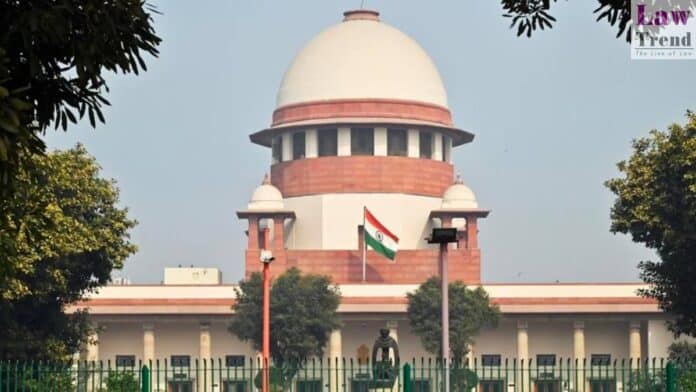Terming district Judiciary as the “backbone of the judicial system”, the Supreme Court on Friday directed all states and the union territories to clear salary arrears and other dues to lower court judges across the country in accordance with the recommendations of the Second National Judicial Pay Commission (SNJPC).
The SNJPC recommendations cover pay structure, pension and family pension and allowances besides dealing with the issue of establishing a permanent mechanism to determine subjects of service conditions of district judiciary.
The top court, which had accepted the recommendations made in 2020 by the SNJPC headed by former apex court judge Justice P V Reddi, directed all states and UTs to ensure that the dues under several heads are positively credited into the accounts of the judicial officers and compliance affidavits filed before it by July 30.

“In the case of payment of arrears of pay, this Court had by Orders dated July 27, 2022 and January 18, 2023 already directed that all arrears of pay be cleared by June 30, 2023. In this regard, it is directed that compliance affidavits must be filed by all States and Union Territories by July 30, 2023 that the arrears of pay have been positively credited into the accounts of the concerned officers,” said the judgement delivered by a bench of Chief Justice D Y Chandrachud and Justices V Ramasubramanian and P S Narasimha.
The verdict said the revised rates of pension, which have been approved by this court, shall be payable from July 01, 2023.
“For the payment of arrears of pension, additional pension, gratuity and other retiral benefits as well, following the orders dated July 27, 2022 and January 18, 2023, it is directed that 25% will be paid by August 31, 2023, another 25% by October 31, 2023, and the remaining 50% by December 31, 2023,” Justice Narasimha, writing the judgement, said.
The top court also said necessary amendments on issues such as uniformity of cadres in district judiciary must be carried out in the service rules of judicial officers across all jurisdictions to implement recommendations of the SNJPC.
“It is thus directed that the High Courts and the competent authorities, wherever applicable, bring the rules in conformity with the recommendations accepted by this Court above within a period of 3 months. Compliance affidavits be placed on record by the High Courts, the States and the Union within four months,” it said.
“The District Judiciary is the backbone of the judicial system. Vital to the judicial system is the independence of the judicial officers serving in the District Judiciary. To secure their impartiality, it is important to ensure their financial security and economic independence,” it said.
The litigation moved by the All India Judges Association dates to 1993 and, consequently, the need was felt to have a Judicial Pay Commission, separate and independent from the Executive, in order to ensure that the system of checks and balances are in place, and the judiciary has a say in their pay and service conditions.
The First National Judicial Pay Commission (FNJPC) was constituted by the Government of India by a resolution dated March 21, 1996.
Also Read
Later, the Second National Judicial Pay Commission was set up which submitted its report on November 10, 2017 after acknowledging the fact that the salary of judicial officers had not raised for more than 10 years.
A report on interim relief was submitted on March 9, 2018 and considering that the judicial officers were without upgraded pay, the top court had on March 27, 2018 directed the states and the Centre to implement the recommendations of the Commission with regard to interim relief.
Subsequently, on January 29, 2020, the SNJPC submitted its final report to the Supreme Court.







